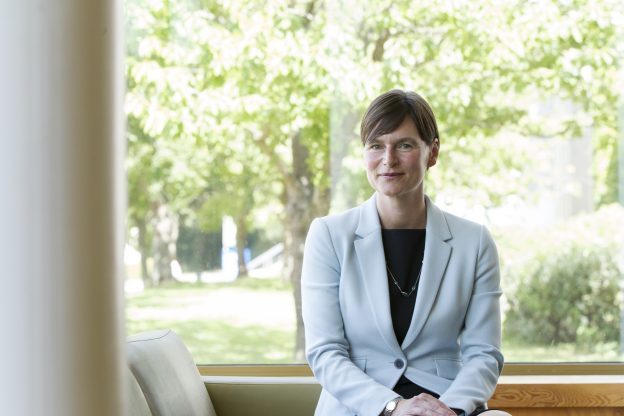Sunday 7 August was our last day hosting this year’s Lambeth Conference so I wanted to write to thank all of you for your patience and support throughout. We don’t host conferences of this scale and international profile very often and I appreciate the knock-on effect this will have had on many, from smaller things like the Gulbenkian being closed to the impact on some of your workspaces. I also want to thank all of those involved over the last fortnight – I know lots of colleagues have been in daily contact with the conference organisers, including across the weekends, to make sure we fulfilled our duties as hosts. The feedback from the organisers and delegates has been uniformly positive throughout the last two weeks so well done to all on a superb operation.
Our commitment to equality, inclusion and mutual respect
I am also very aware that many will have found our hosting of the Lambeth Conference difficult on a personal level. As Georgina updated ahead of the Conference, we are clear that the official Anglican stance on the place of LGBTQ+ people both within the Church and wider society does not fit with our own values as a University. This is especially true of our deeply held commitment to equality, inclusion and mutual respect. I’m sure that many will have seen the coverage of the Archbishop of Canterbury’s restatement of the Church’s 1998 position on Equal Marriage and we are unambiguous that we are in fundamental disagreement on this issue.
While we had no say over the content of the Conference, what we always aimed to do as hosts was to support positive voices seeking to move the debate forward within the Church. This included providing support where we could for those promoting positive change on LGBTQ+ equality and extending our welcome directly to the same-sex spouses of LGBT bishops in attendance. Our University is welcoming and inclusive to all and we were in regular contact with the same-sex spouses throughout to ensure that they felt as welcome on our campus as any guest to our University has a right to expect.
Progression within the Anglican Church
Meeting them and hearing their stories was moving and humbling, both the pain they felt at their exclusion from the Conference programme but also their determination to be present, visible and proud and, through their presence, to help bring about the change that they and we very much want to see. It made me reflect that progress can be difficult, uncomfortable and too slow for our liking but that it happens through small acts of personal courage, resilience and determination just as much as through the bigger public and media debates and discussions that we also saw during the conference.
The Lambeth Conference has been hosted at Kent since the 1970s and we are aware the Church has evolved its thinking in a number of areas over that time. However, the pace of progress, in a world that is rapidly changing and increasingly challenged, appears frustratingly slow and, while it is clear from liberal voices within the Church that many felt significant steps forward had been made in the past fortnight, we hope that the Church’s thinking and actions in this area will now evolve more rapidly.
Evolving our EDI Strategy
Lastly, I wanted to touch on both the Lambeth Walk and Rainbows in Religion symposium organised by the University’s LGBTQ+ Staff Network, which saw different voices coming together to discuss the intersection of faith and sexuality and to celebrate our diversity. I know how challenging the last two weeks have been for our LGBTQ+ colleagues in particular and I know too how important it was for everyone to have the opportunity to show their support for our community. I hope the Network events were a help with this and I know that the large and positive show of support for LGBTQ+ people on campus was also hugely appreciated by many Conference delegates.
Events like Lambeth bring together different voices from diverse backgrounds. That said, it’s very important we learn what we can from this experience, particularly around the impact on our community. Coming out of this, I know we have work to do to listen and evolve our EDI strategy in particular and to build on vital work underway in that area. Kent is a special community which all of us are part of and I am determined that we celebrate and champion the breadth of its diversity in all that we do.
With all good wishes for the rest of the summer,
Karen
